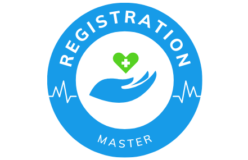 Depression is a serious condition that can affect people of all ages and impact their overall mental health. Unfortunately, it is also associated with a variety of physical health concerns as well. While it’s important to be aware of the psychological symptoms, such as feeling sad or hopeless for prolonged periods, it’s also essential to understand how your depression could lead to other conditions. In this blog post, we’ll explore what diseases are linked to depression so that those living with the disorder can better recognize any additional health risks they might face.
Depression is a serious condition that can affect people of all ages and impact their overall mental health. Unfortunately, it is also associated with a variety of physical health concerns as well. While it’s important to be aware of the psychological symptoms, such as feeling sad or hopeless for prolonged periods, it’s also essential to understand how your depression could lead to other conditions. In this blog post, we’ll explore what diseases are linked to depression so that those living with the disorder can better recognize any additional health risks they might face.
The link between depression and physical ailments
Depression and physical ailments often go hand in hand, as many who suffer from one also experience symptoms of the other. While the exact nature of the link between the two is not fully understood, research has shown that mental health conditions can have a profound impact on bodily functions and overall well-being. Depression, for example, has been linked to increased inflammation in the body, which can lead to a range of physical health problems, including heart disease and chronic pain. Conversely, physical ailments can also contribute to or worsen symptoms of depression. Understanding the complex relationship between mental and physical health is crucial for providing effective treatment and support for those in need.
The impact of stress on physical health
Stress can take a major toll on physical health. Over time, chronic stress can lead to a range of health problems, including high blood pressure, heart disease, and obesity. When we experience stress, our bodies release a hormone called cortisol, which can raise blood sugar levels and contribute to weight gain. Additionally, stress can cause tension in the muscles and lead to headaches and other bodily pain. While it’s impossible to completely avoid stress, it’s important to find healthy ways to manage it through exercise, meditation, or seeking support from loved ones. Taking steps to manage stress can improve both our mental and physical well-being, also boost our focus and concentration.
How depression can lead to chronic diseases
Depression can be a debilitating condition that impacts almost every aspect of a person’s life. But what many people may not realize is that this mental health disorder can also have physical consequences. Depression has been linked to a range of chronic diseases, including heart disease, diabetes, and cancer. While the exact relationship between depression and these diseases is still not fully understood, it is believed that the stress and inflammation associated with depression may be a contributing factor. With depression rates on the rise, it is more important than ever to address this condition and its potential long-term health impacts.
Common conditions associated with depression
Depression is a serious mental health issue that affects millions of people worldwide. Recent studies show that patients with depression are at higher risk of developing various common conditions such as heart disease, type 2 diabetes, and stroke.
These conditions can make depression worse, and depression can make these conditions worse, creating a cycle of negative health impacts. Healthcare professionals are recognizing the link between depression and physical health issues, and are working to develop treatments that address both aspects of patients’ health.
By treating all of a patient’s conditions together, healthcare providers can better support their patients in achieving overall wellness and improving their quality of life.
The connection between anxiety and digestive issues
Anxiety is a common mental health disorder that affects millions of people worldwide. While the symptoms of anxiety can vary from person to person, many individuals experience digestive issues when they are anxious. This can include nausea, abdominal pain, diarrhea, and constipation. Recent studies have begun to explore the possible connection between anxiety and digestive issues, and it appears that there may be a link. It is believed that anxiety can impact the functioning of the digestive system by altering the balance of healthy gut bacteria, increasing inflammation, and triggering the release of stress hormones. Understanding this connection is crucial for those who struggle with anxiety and digestive issues, as it can lead to more effective treatments and strategies for managing symptoms.
Examining the effects of depression on the immune system
Depression is an incredibly complex mental health condition that has far-reaching effects throughout the body. Recent research has begun to explore how this disorder impacts the immune system and what that means for physical health. Studies have shown that depression can lead to inflammation in the body, which can exacerbate existing health conditions and even increase the risk of developing new ones. This can be especially problematic for people with chronic illnesses like diabetes or heart disease. By better understanding the connections between depression and immune function, researchers hope to find new ways to treat both disorders and improve overall health outcomes for those struggling with these complex conditions.
In conclusion, while it can often be difficult to identify the psychological causes of physical issues if you are experiencing any signs or symptoms of depression, it is important to consult a medical professional as soon as possible. Acknowledging and treating any underlying mental health problems can help limit the risk of developing further physical ailments. Living with a chronic mental illness like depression can also have significant impacts on daily life – such as impacting energy levels, sleep patterns, and appetite – so finding an effective management strategy is essential. Practicing self-care and maintaining good relationships with friends and family are all good ways to minimize the negative effects of depression and improve overall health. Although it may be challenging at times, adopting a healthy lifestyle that includes regular exercise and cultivating hobbies that provide relaxation are great methods for dealing with stress and reducing the risk of both physical and mental illnesses.

